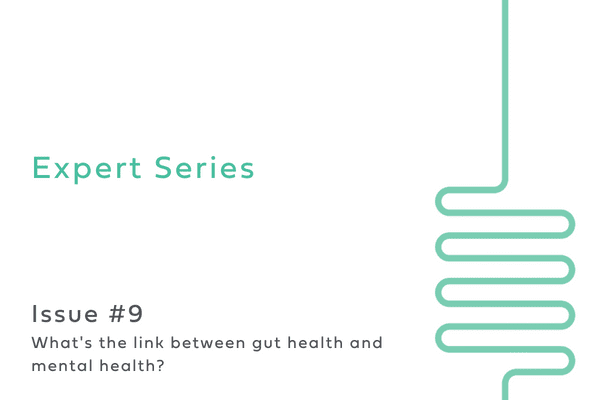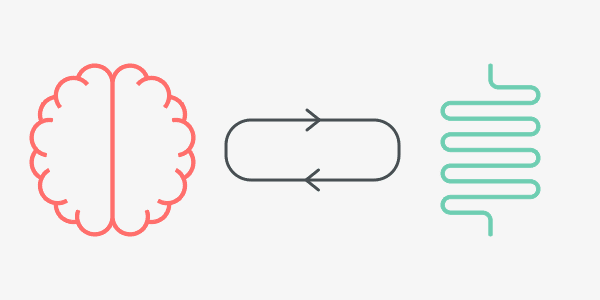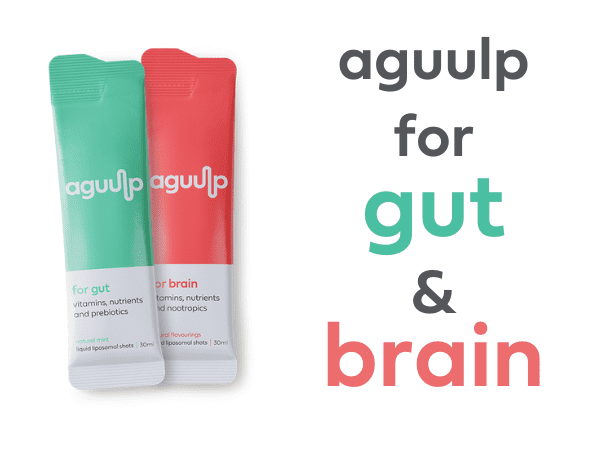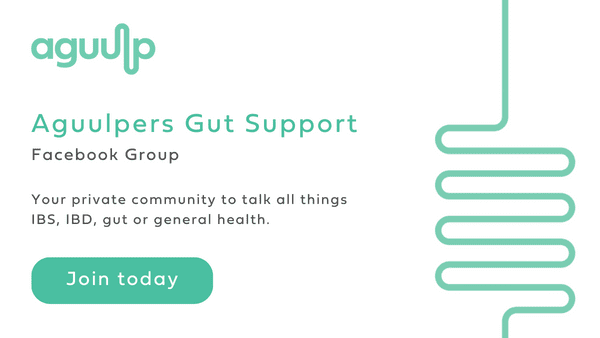
Are you aware of the relationship between your gut health and mental health, and the effect this can have in your body? We caught up with registered nutritional therapist, Elizabeth Wall to get a deeper understanding of the importance of the relationship between our gut health and mental health, and how we can support this relationship better day-to-day.
The link between gut health and mental health

Our gut health and mental health are more connected than you might think, as the gut and the brain are constantly sending signals back and forth to one another. This communication system that links our gut and brain is called the gut-brain axis.
The gut-brain axis connects our gut health and mental health via the microbiota in our gut (the microbes, not the microbiome), which speak to the neurons in our brain via the vagus nerve.
Our gut health and mental health also communicate via neurotransmitters, which put the 500 million neurons in the gut in direct contact with the billions of neurons in the brain. This means your gut and brain are closely interconnected, and research has explored to what extent can gut bacteria affect mental health, influencing our mental wellbeing and response to stress.
Gut bacteria and mental health: important strains
When it comes to exploring specific gut bacteria and mental health, there are several probiotic strains (known as psychobiotics) that have been researched for their effects on stress, anxiety and low mood including:
- Bifidobacterium longum 1714
- Lactobacillus acidophilus Rosell-52 and Bifidobacterium longum Rosell-175
- Lactobacillus casei Shirota
These gut bacteria strains are thought to influence our state of mind due to the impact they have on the hypothalamic-pituitary-adrenal axis (HPA axis). The HPA axis consists of the body’s stress response system, which regulates our hormonal response to physical or psychological stress.
Research has shown that an imbalance of the composition of our gut bacteria can lead to the activation of this stress response system (HPA axis) resulting in disruption to our stress hormones, namely cortisol (and others). This can have a knock-on effect on our mood, sleep patterns, and feelings of stress, demonstrating how gut bacteria and mental health can be closely linked.
How else can gut bacteria affect mental health?
Another way in which gut bacteria and mental health are linked is via the role that probiotics are thought to play in influencing our mood due to the part they play in serotonin production. Serotonin is also known as the ‘happy hormone’ and 95% of our serotonin is produced in the gut – not the other way around as most people would believe. This makes serotonin a key part of the gut-brain axis, further demonstrating how gut health and mental health are closely linked.
What’s more, gamma-aminobutyric acid (GABA) is another neurotransmitter produced by your gut, which controls feelings of fear and anxiety and has a calming effect on the brain.
Research has shown that an imbalance of gut bacteria may have an impact on inflammation, which is a factor that may contribute to low mood, according to one study. It suggests that improvements in the composition of the gut microbiome can reduce chronic levels of elevated inflammation, which can have a knock-on effect on improved mood and symptoms of stress – gut bacteria and mental health really are closely intertwined.
How to look after your gut health and mental health
Taking care of your gut-brain axis can benefit both your gut health and mental health. You can do this by making the following simple lifestyle changes:
- Eat a balanced diet with plenty of vegetables, fibre, and fermented foods
- Cut down on sugar and carbs – these can increase your levels of pathogenic bacteria
- Exercise regularly to encourage a more diverse microbiome
- Avoid taking antibiotics if you don’t absolutely need them – always speak to your GP if you’re unsure
- Get plenty of sleep
- Try our gut health supplements
Supplements to support your gut health and mental health
Taking a probiotic supplement can help you to look after your gut-brain axis, with our Daily Synbiotic supplement containing Bifidobacteria and Lactobacillus probiotic strains. Some of these are classified as ‘psychobiotics’, which have been shown in studies to have a positive effect on stress and anxiety levels, helping you to look after your gut health and mental health.
Prebiotic supplements could also help you to look after your gut bacteria and mental health. Aguulp for Gut contains a powerful blend of vitamins, amino acids, collagen, and prebiotics, which helps to feed and stimulate the growth of good gut bacteria, support the gut lining, reduce bloating, and contribute to regular, healthy bowel function. Prebiotics have been shown in studies to help lower cortisol – a stress hormone which is linked to anxiety and depression.

To further support your gut-brain axis, you might like to take our Aguulp for Brain formula alongside Aguulp for Gut. These gut health supplements can work symbiotically, fighting inflammation, IBS, and Crohn’s, helping to improve anxiety and depression, and increasing focus and motivation. Try our Gut & Brain Dual Pack to feel the difference for yourself.
Want to know more about gut health and mental health?
If you have any questions regarding our gut supplements, gut health and mental health, or even general health, send us a message on [email protected] and one of our in-house experts will be more than happy to help. We also have our very own Aguulp Gut Support Facebook group, where you can discuss gut, IBS, or general health problems freely without judgement. You can also sign up to our Aguulp gut health newsletter.
Sources
- https://www.medicalnewstoday.com/articles/318128#Further-research-and-considerations
- https://foodandmoodcentre.com.au/2020/09/lactobacillus-and-anxiety-whats-the-link/
- https://pubmed.ncbi.nlm.nih.gov/25879690/
- Schmidt K, Cowen PJ, Harmer CJ, Tzortzis G, Errington S, Burnet PW. Prebiotic intake reduces the waking cortisol response and alters emotional bias in healthy volunteers. Psychopharmacology (Berl). 2015 May;232(10):1793-801. doi: 10.1007/s00213-014-3810-0. Epub 2014 Dec 3. PMID: 25449699; PMCID: PMC4410136.
- https://pubmed.ncbi.nlm.nih.gov/31379879/
- https://pubmed.ncbi.nlm.nih.gov/29903615/
- https://pubmed.ncbi.nlm.nih.gov/32335265/
- https://pubmed.ncbi.nlm.nih.gov/29731182/




